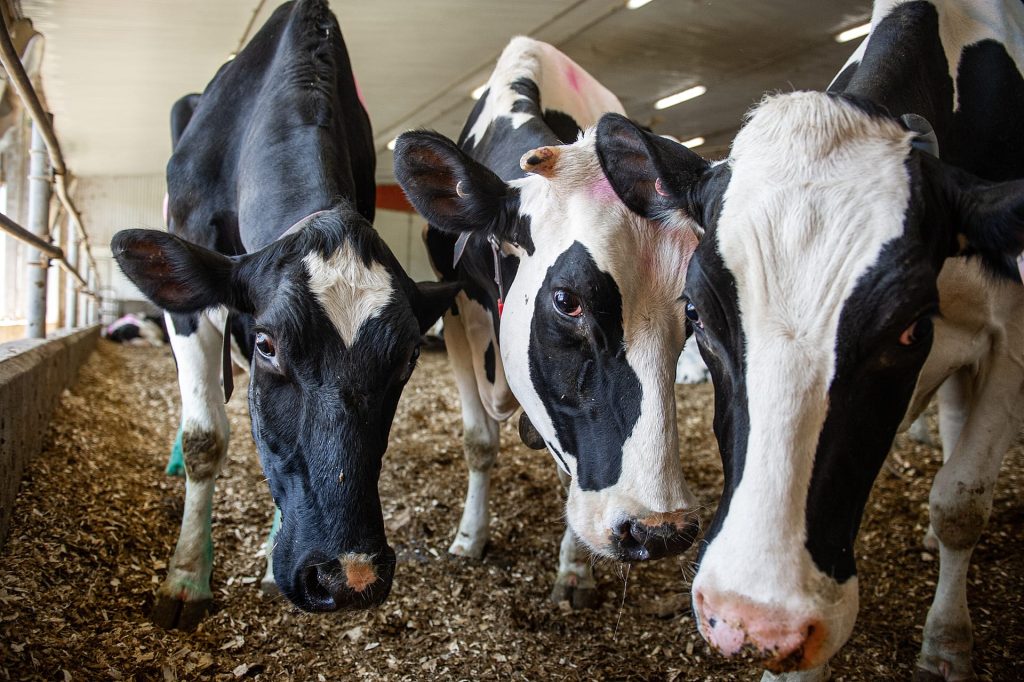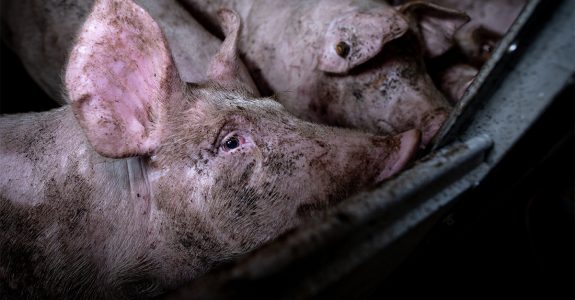Canada slaughters over 800 million farmed animals every year for food.
The meat, dairy, and egg industries have mounted a massive public relations campaign, trying to create a feel-good, idealistic picture of how farmed animals are treated, through advertising and endorsements. But in reality, most farmed animals live lives of misery and deprivation from birth through to the day they’re slaughtered.
The vast majority of cows, pigs, and chickens in Canada are raised in nightmarish factory farms. Shockingly, it’s not illegal to confine farmed animals in large numbers indoors in cramped and filthy conditions, where they endure immense mental and physical suffering.
Canada has some of the worst animal protection laws in the Western world. Unlike many other developed nations, we lack provincial and federal laws that regulate the treatment of animals on farms, as well as proactive government inspections.
Instead, the government lets a farm industry-dominated group called the National Farm Animal Care Council (NFACC) develop voluntary, unenforceable “standards” for animals on farms. These guidelines are laid out in NFACC’s Codes of Practice for farmed animals.

While NFACC likes to position itself as “the national lead for farm animal care and welfare in Canada”, its Codes of Practice permit horrific acts, such as slicing off chickens’ sensitive beaks without anesthetic, confining pigs in tiny gestations crates that prevent them from turning around, and separating newborn calves and their mother cows.
NFACC codes are a product of industry self-regulation and are no replacement for strong laws and proactive government inspections. Animal Justice lawyers and many other animal protection organizations agree that NFACC codes still allow for horrific cruelty, and simply aren’t sufficient to protect animals from some of the worst abuses on farms.
You can help end cruelty to farmed animals by educating yourself about modern farming practices, and by supporting our mission at Animal Justice as we work to give farmed animals the legal protections they need.
Banner photo: Konrad Lozinski




